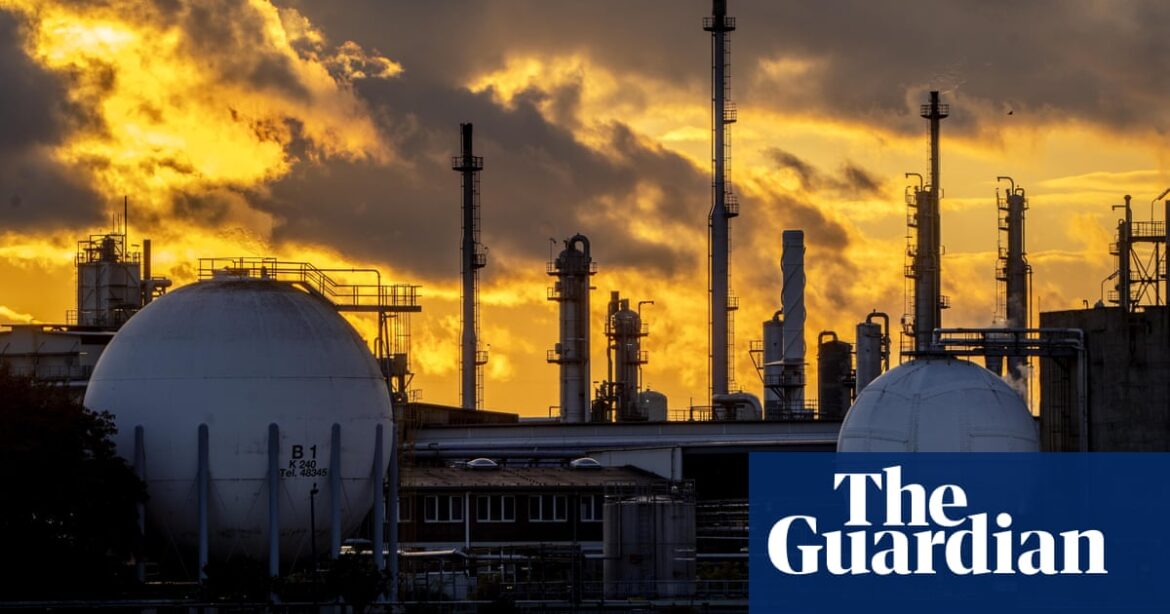
BASF, a German chemical company, has decided to end its involvement in two joint ventures in Xinjiang. This decision comes after reports of human rights violations linked to their partner company, which the CEO of BASF stated was unacceptable.
On Friday, BASF released a statement acknowledging that their routine investigations, including internal and external audits, have not uncovered any instances of human rights abuses in their two joint ventures. However, they also noted that recent reports have indicated actions that do not align with BASF’s principles.
A group of international politicians has called on BASF to pull out of Xinjiang, a northwestern region in China where there have been numerous reports of human rights violations supported by the government.
The politicians’ letter followed reports in German media that people employed by BASF’s Chinese partner company, Xinjiang Markor Chemical Industry, also known as Markor Chemical, accompanied Chinese state officials on home visits to Uyghur households as part of a government initiative that human rights groups have said is used to spy on people and indoctrinate them.
According to reports, the purported visits occurred in 2018 and 2019 during the Chinese government’s efforts to suppress Uyghurs and other minority groups in Xinjiang. The government claims that its actions in Xinjiang are aimed at counter-terrorism and reducing poverty, while also promoting ethnic unity in the area.
BASF announced on Friday that it plans to sell off its two joint ventures by the end of 2023 due to concerns about the market conditions and the environmental impact of the chemicals produced at the Xinjiang plants. The company has decided to expedite this process following recent reports about Markor Chemical. These two projects are the only ones BASF has in Xinjiang, although it does have other facilities in different areas of China.
On Friday, Martin Brudermüller, the CEO of BASF, held a meeting with a delegation of lawmakers, including Reinhard Bütikofer from Germany and Iain Duncan Smith from Britain. The meeting was requested through a letter organized by the Inter-Parliamentary Alliance on China, a nonpartisan group of legislators with a focus on China.
During the meeting, it was reportedly stated by Brudermüller that various audits conducted since 2019, both internally and externally, did not uncover any misconduct or breaches of our standards. However, the recent accusations involving BASF’s partner company were deemed a violation of our principles and a significant concern.
Asked by Arfiya Eri, a politician from Japan, about various allegations of rape, forced marriage, forced consumption of pork and alcohol, and home visits against Uyghurs in Xinjiang, Brudermüller stated that the descriptions were unimaginable for a “normal” mind. He also commented that evidence of abuses in Xinjiang brings to mind dark moments in history, including those in his own country. He emphasized that BASF had no involvement in these actions. There is no accusation that Markor participated in any of the reported abuses.
Brudermüller did not provide specific details on when the withdrawal would occur, but expressed the hope that it would be within the following months.
Eri expressed that BASF’s choice to pull out of Xinjiang was groundbreaking and held great historical importance.
I commend BASF for their actions and trust their statement that they intend to withdraw as soon as possible. With their decision to withdraw, BASF has eliminated any justification for other companies to continue their involvement.
In the latest annual financial report from BASF, it was revealed that their businesses in Greater China contributed to 14% of their overall sales in 2022.
BASF has been contacted for additional input.
Source: theguardian.com



